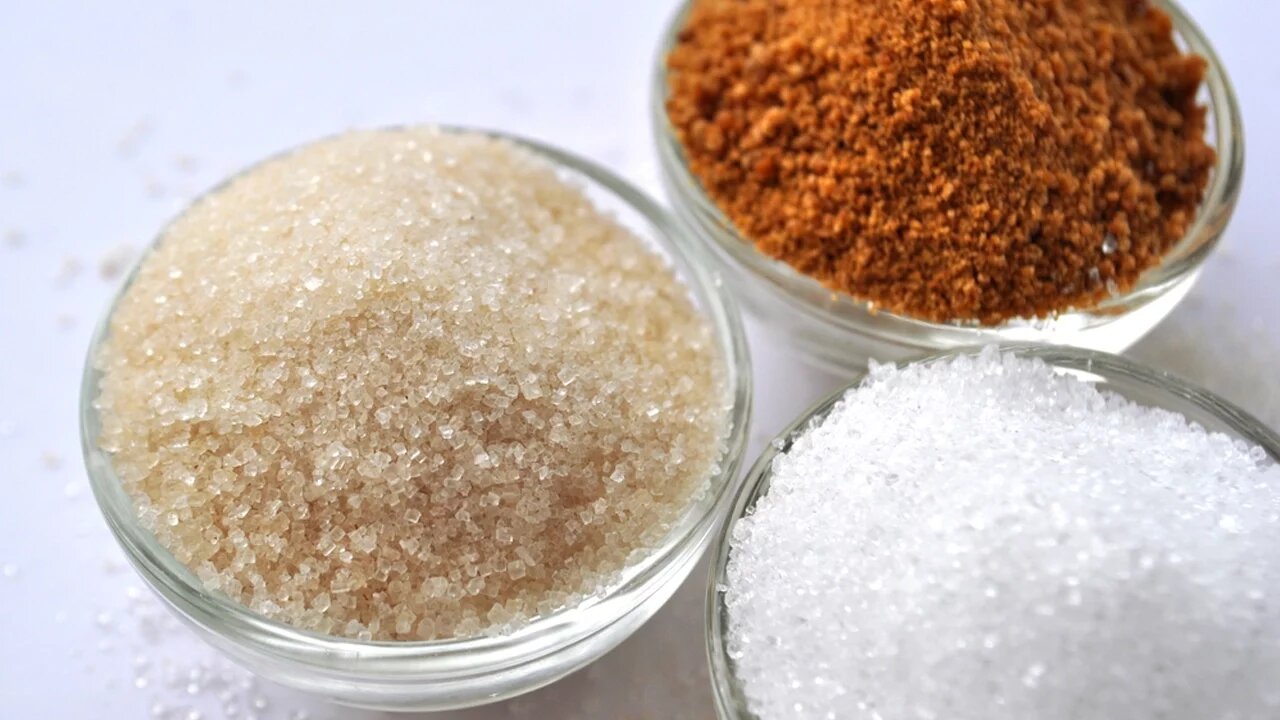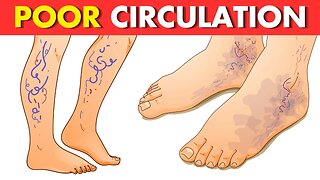Premium Only Content

Top 8 Natural Sweeteners and Sugar Alternatives
The American Heart Association has recommended in their heart-healthy guidelines that you should not consume more than 100 to 150 calories from added sugars. Added sugars are considered the sugar and syrups that are added to food either during processing or preparation.
Sugar affects each and every part of your body, from head to toe. It can cause diabetes, tooth decay, obesity, heart disease, cancer and poor cognitive functioning.
A form of sugar that should be especially avoided is refined sugar. It is instead recommended that you choose natural sweeteners when you are craving something sweet. Natural sweeteners are substitutes for sugar that are healthier than the processed table sugar, or other artificial sugars.
Fruit is high in natural sugar and can easily satisfy your sweet tooth. However, you cannot usually add fruit to beverages or recipes that call for sugar. Yet, there are natural sweeteners that are healthy substitutes for sugar and they can be used in many different forms.
Here are the top eight natural sweeteners and sugar alternatives:
1. Raw Honey
Raw honey is one of the best natural sweeteners since it also provides health benefits for your mind and body. Honey is made from the nectar of flowers and is collected by honey bees. Honey contains eighty percent natural sugar, eighteen percent water and two percent of minerals, vitamins, pollen and proteins. Honey contains fructose and glucose, which make up the majority of its sugar content.
2. Stevia
Another healthy sugar substitute is stevia. Stevia is created from the leaves of the stevia rebaudiana plant. It is more than two hundred times sweeter than table sugar and can be found in liquid, packets, dissolvable tablets and baking blends.
3. Dates
Another healthy alternative to sugar are dates, which are a sweet fruit that come from the date palm tree. When ripe, their sugar content is about eighty percent. You can also use sugar made from dried dates. They have a sweet flavor that is similar to that of brown sugar.
4. Agave Syrup
Agave nectar, or agave syrup, is also a healthy alternative to traditional sugar. It is produced from several types of agave plants. The taste is very similar to that of honey. However, agave syrup has a high amount of fructose and it is recommended to use in limited quantities.
5. Blackstrap Molasses
Blackstrap molasses is another healthy sugar alternative. It is made from the sugar production process, when the raw sugar cane is boiled and its nutrients are concentrated. It has a glycemic measure of fifty-five and therefore can be used by diabetics and those who are trying to lose weight.
6. Coconut Sugar
Coconut sugar is another natural sweetener that can be used instead of sugar. It is created from the sap of a cut flower bud from the coconut palm tree. It has a sweet taste, similar to brown sugar, with a hint of a flavor like caramel.
7. Xylitol
Another natural alternative to sugar is Xylitol, which is made from plant fibers of berries, birch trees and cornhusking. It is beneficial to your teeth, has very few calories and does not raise blood glucose levels. Therefore, it can be consumed by diabetics.
8. Yacon Syrup
Another healthy alternative to sugar is yacon syrup, which is made from the root of the yacon plant that grows in the Andes Region of South America. Yacon is also a prebiotic that helps your body to absorb Calcium and other vitamins. It can also help to grow healthy gut flora, which aids in digestion.
Yacon syrup has a very low glycemic index score and a high concentration of inulin, which is a prebiotic fiber. Because of this, yacon syrup is a great option for diabetics and can be beneficial to those who are trying to lose weight.
What are you favorite natural sweeteners? Comment below to let us know which you use most often.
Facebook: https://bit.ly/38BWbw3
Pinterest: https://bit.ly/2Irvwa6
Disclaimer: The materials and the information contained on Natural Cures channel are provided for general and educational purposes only and do not constitute any legal, medical or other professional advice on any subject matter. These statements have not been evaluated by the FDA and are not intended to diagnose, treat or cure any disease. Always seek the advice of your physician or other qualified health provider prior to starting any new diet or treatment and with any questions you may have regarding a medical condition. If you have or suspect that you have a medical problem, promptly contact your health care provider.
-
 4:50
4:50
Natural Cures
1 year ago $1.12 earned5 Warning Signs of Poor Circulation and How to Fix It
3.3K1 -
 LIVE
LIVE
Vocalot
15 hours agoDay 6! New Here! New Rumble Friends!? 🤙
1,728 watching -
 LIVE
LIVE
The Connect: With Johnny Mitchell
8 hours agoCan He Stop Them? Inside Trumps War On Mexican Drug Cartels & The New Era Of Mexican Organized Crime
316 watching -
 LIVE
LIVE
Tundra Tactical
54 minutes agoLuis Valdes Of GOA Joins The Worlds Okayest Firearms Live Stream!!!
419 watching -
 LIVE
LIVE
Man in America
9 hours agoAre Trump & Musk the COUNTER-ELITES? w/ Derrick Broze
1,250 watching -
 LIVE
LIVE
DLDAfterDark
35 minutes agoDLD Live! SHTF Handguns! Which Would You Choose?
261 watching -
 1:50:38
1:50:38
Mally_Mouse
3 hours agoSaturday Shenanigans!! - Let's Play: Mario Party Jamboree
15.4K -
 1:13:00
1:13:00
Patriots With Grit
7 hours agoWill Americans Rise Up? | Jeff Calhoun
8.66K9 -
 14:55
14:55
Exploring With Nug
7 hours ago $5.95 earnedWe Found Semi Truck Containers While Searching for Missing Man!
31K4 -
 27:57
27:57
MYLUNCHBREAK CHANNEL PAGE
15 hours agoOff Limits to the Public - Pt 3
61.9K54